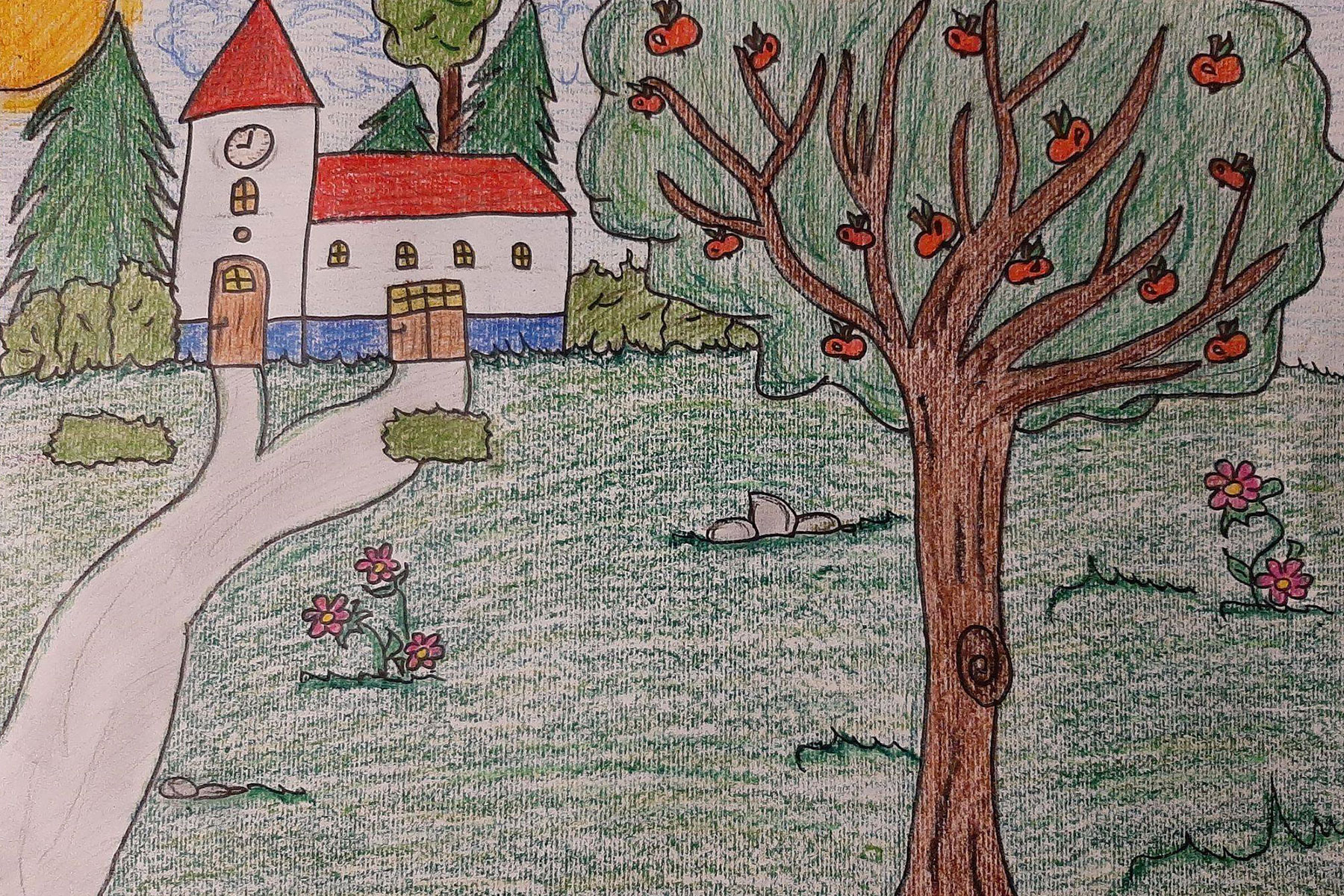Youth-led climate project contributes to biodiversity conservation and environmental awareness
(LWI) – “Even if I knew that the world was to collapse tomorrow, I would still plant an apple tree today.” This hope-filled quote, attributed to the reformer Martin Luther, inspired Miroslav Ponjičan, a young pastor of the Slovak Evangelical Church of the Augsburg Confession in Serbia (SEAVC). However, he did not plant just one tree but initiated a project through which the church’s 29 congregations planted 2,900 apple trees of old autochthonous varieties.
“The quote from Luther is the theme for our 100th church anniversary this year, 2021,” explains Jaroslav Javornik, bishop of SEAVC. “And the tree planting campaign takes it up in several different ways.” The project’s professional partners were Prof. Dr. Vladislav Ognjanov, a leading expert in fruit tree cultivation, and the MAVM Nursery, which grows seedlings of old fruit varieties.
“Apples are part of our culture and tradition, and we would like to preserve their diversity,” explains twenty-six-year-old Ponjičan. By planting old apple varieties with names such as Janovka, Budimka, Kolaöara, or Tetovka, the project also counteracts extensive modern agriculture’s consequences: limiting biodiversity, economically optimizing individual agricultural products, and increasingly diminishing forest areas.
“Vojvodina is a fertile area north of the Danube and the provincial capital Novi Sad, which was shaped by agriculture for centuries,” explains Ponjičan, who himself has been at home in nature and agriculture since his childhood days. “This is also the area where we have most of our congregations.”
For the tree plantings, each of the 29 congregations received 100 young trees between November and February – one for each year of SEAVC’s existence. “Prof. Ognjanov recommended that we plant the trees during this period because the soil temperatures usually stay below eight degrees Celsius then,” Ponjičan said. “The trees don’t need to be watered, but they are not exposed to frost either. And in the spring, they can sprout right away.”
In addition to planting apple trees, children also made drawings, learnt songs, and prepared a church service.
Many children and youth planted the trees at home, in their vegetable gardens, church gardens, or other suitable areas. “For our anniversary year, we are thus setting a positive, intergenerational sign – for our church, for the creation, and the climate,” says Ponjičan.
In his parish in Selenča, Ponjičan combined the tree plantings with other activities. He invited the 60 or so children and their parents to an information session. Then they were sent off with the task of planting “their” tree seedling and sending in a photo of it. Also, Ponjičan worked with the children and youth to develop a worship service around Luther’s quote about the apple tree. “What emerged was a new song about the apple, as well as great poems and drawings by the children on the theme of apples, apple trees, and the church,” the young pastor said enthusiastically.
Now that the seedlings are planted, children, youth, and adults are looking forward to spring and for the little trees to sprout, eagerly awaiting the time when they will be able to taste their fruit.
By LWF/A.Weyermüller
The project that Ponjičan initiated in SEAVC is one of several with which The Lutheran World Federation (LWF) supports young people in its member churches in their commitment to climate justice.





